Related Research Articles
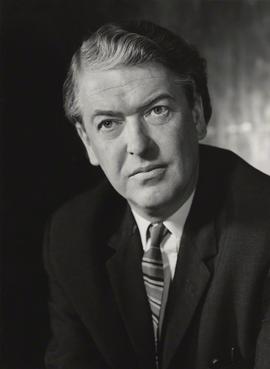
Sir Kingsley William Amis was an English novelist, poet, critic and teacher. He wrote more than 20 novels, six volumes of poetry, a memoir, short stories, radio and television scripts, and works of social and literary criticism. He is best known for satirical comedies such as Lucky Jim (1954), One Fat Englishman (1963), Ending Up (1974), Jake's Thing (1978) and The Old Devils (1986).
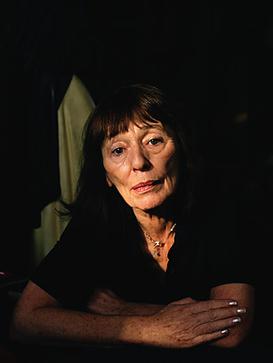
Dame Beryl Margaret Bainbridge was an English writer from Liverpool. She was primarily known for her works of psychological fiction, often macabre tales set among the English working class. Bainbridge won the Whitbread Awards prize for best novel in 1977 and 1996; she was nominated five times for the Booker Prize. She was described in 2007 by Charlotte Higgins as "a national treasure". In 2008, The Times named Bainbridge on their list of "The 50 greatest British writers since 1945".
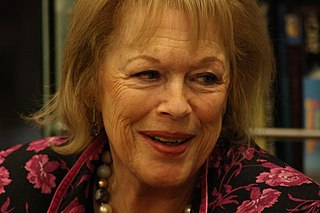
Lady Antonia Margaret Caroline Fraser, is a British author of history, novels, biographies and detective fiction. She is the widow of the 2005 Nobel Laureate in Literature, Harold Pinter (1930–2008), and prior to his death was also known as Lady Antonia Pinter.

Dame Margaret Drabble, Lady Holroyd, is an English biographer, novelist and short story writer.

Margaret Forster was an English novelist, biographer, memoirist, historian and critic, best known for the 1965 novel Georgy Girl, made into a successful film of the same name, which inspired a hit song by The Seekers. Other successes were a 2003 novel, Diary of an Ordinary Woman, biographies of Daphne du Maurier and Elizabeth Barrett Browning, and her memoirs Hidden Lives and Precious Lives.

Ethel Campbell Louise Anderson was an early twentieth century Australian poet, essayist, novelist and painter. She considered herself to be mainly a poet, but is now best appreciated for her witty and ironic stories. Anderson has been described as "a high-profile author, artist, art commentator and emissary for modernism".
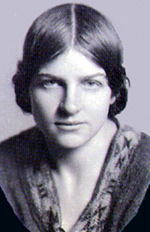
Naomi Mary Margaret Mitchison, Baroness Mitchison was a Scottish novelist and poet. Often called a doyenne of Scottish literature, she wrote over 90 books of historical and science fiction, travel writing and autobiography. Her husband Dick Mitchison's life peerage in 1964 entitled her to call herself Lady Mitchison, but she never did. Her 1931 work, The Corn King and the Spring Queen, is seen by some as the prime 20th-century historical novel.
Dame Rose Tremain is an English novelist, short story writer, and former Chancellor of the University of East Anglia.
The Minorities Research Group (MRG) was the first organisation to openly advocate the interests of lesbians in the United Kingdom. It was founded by four women who got together in response to an article that was published in the magazine Twentieth Century. The group published the Minorities Research Group Newsletter, and went on to publish its own lesbian magazine called Arena Three that provided a lifeline to remote lesbians around the country.
Clive John Sinclair was a British author who published several award-winning novels and collections of short stories, including Hearts of Gold (1979), Bedbugs (1982) and The Lady with the Laptop (1996).
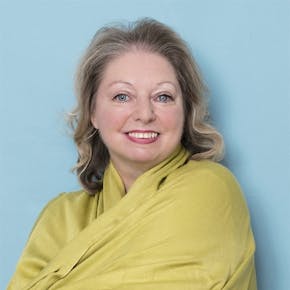
Dame Hilary Mary Mantel was a British writer whose work includes historical fiction, personal memoirs and short stories. Her first published novel, Every Day Is Mother's Day, was released in 1985. She went on to write 12 novels, two collections of short stories, a personal memoir, and numerous articles and opinion pieces.

Charlotte Despard was an Anglo-Irish suffragist, socialist, pacifist, Sinn Féin activist, and novelist. She was a founding member of the Women's Freedom League, Women's Peace Crusade, and the Irish Women's Franchise League, and an activist in a wide range of political organizations over the course of her life, including among others the Women's Social and Political Union, Humanitarian League, Labour Party, Cumann na mBan, and the Communist Party of Great Britain.
Events from the year 1803 in the United Kingdom.
The academic discipline of women's writing is a discrete area of literary studies which is based on the notion that the experience of women, historically, has been shaped by their sex, and so women writers by definition are a group worthy of separate study: "Their texts emerge from and intervene in conditions usually very different from those which produced most writing by men." It is not a question of the subject matter or political stance of a particular author, but of her sex, i.e. her position as a woman within the literary world.
Events from the year 1844 in Ireland.
Hilary Bailey was a British writer, critic and editor.

Annie Shepherd Swan, CBE was a Scottish journalist and fiction writer. She wrote mainly in her maiden name, but also as David Lyall and later Mrs Burnett Smith. A writer of romantic fiction for women, she had over 200 novels, serials, stories and other fiction published between 1878 and her death. She has been called "one of the most commercially successful popular novelists of the later nineteenth and early twentieth centuries". Swan was politically active in the First World War, and as a suffragist, a Liberal activist and founder-member and vice-president of the Scottish National Party.
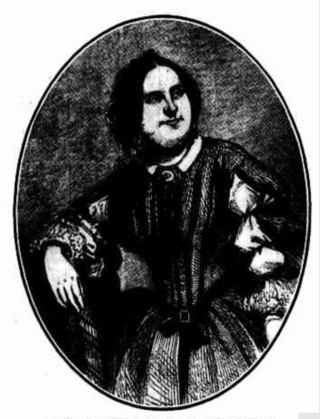
Eliza O'Flaherty was an Australian writer and stage actress.
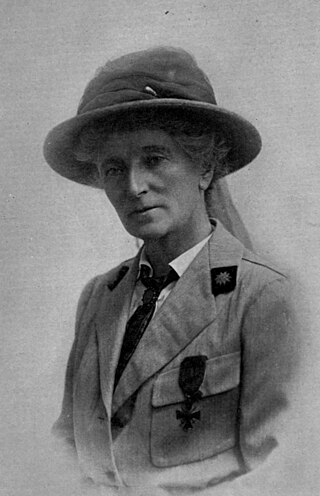
Katherine Mary Harley was a suffragist. In 1913 she proposed and organised the Great Pilgrimage on behalf of the National Union of Women's Suffrage Societies. During the First World War she helped to found and organise the Women's Emergency Corps.

Mothers of the Novel: 100 Good Women Writers Before Jane Austen (1986), by Dale Spender, is a foundational study for the reclamation project central to feminist literary studies in English in the late 1980s and 1990s.
References
- ↑ Ross, Eden (4 May 1986). "In Short: Fiction". The New York Times. Retrieved 19 May 2021.
- ↑ Bailey, Hilary; "Birth Rites: Hilary Bailey on new fiction"; The Guardian, 4 September 1987; p. 27
- ↑ Morrissy, Mary (10 April 1993). "A bad case of the unrequiteds: 'St Patrick's Daughter'". The Independent. Retrieved 19 May 2021.
- ↑ "Creative Writing fellowships". University of East Anglia. 12 January 2009. Retrieved 24 January 2010.
- ↑ Motion, Andrew (11 September 1997). "New Writing 2". British Council. Archived from the original on 4 January 2010. Retrieved 24 January 2010.
- ↑ "Oxford Dictionary of National Biography, Charlotte Despard" . Oxford Dictionary of National Biography (online ed.). Oxford University Press. 15 September 2004. doi:10.1093/ref:odnb/37356. ISBN 978-0-19-861412-8 . Retrieved 24 January 2010.(Subscription or UK public library membership required.)
- ↑ "Electronic British library Journal, Authors". British Library. 15 October 2009. Retrieved 24 January 2010.
- ↑ "A Paper Heart Is Beating, A Paper Boat Sets Sail". Fish Publishing. 7 April 2007. Archived from the original on 19 August 2010. Retrieved 24 January 2010.